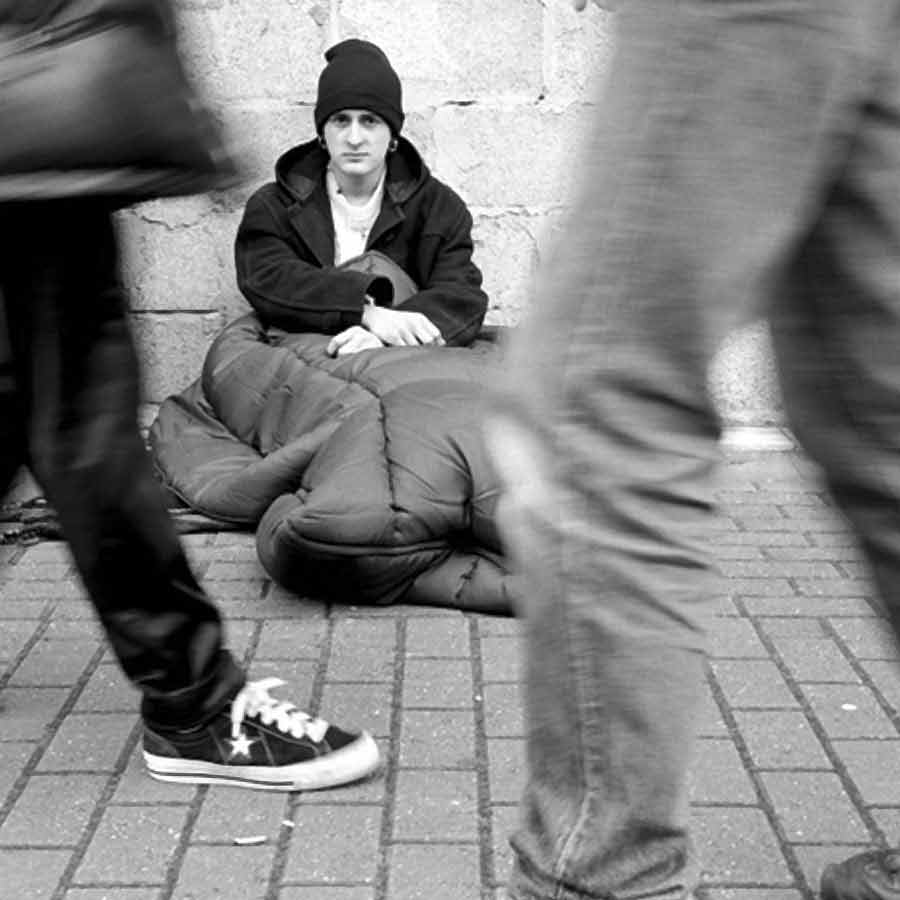So a few weeks ago I went to a gathering called “Butch Voices”. Apparently there’s a conference for butches down in the States but not everyone can get to it. So the organizers encouraged people to hold their own smaller gatherings in various cities. They could converse about whatever issues surrounding being butch and butch identity were relevant to them in their context and forward their discussion notes to be included in the larger conversation that will happen later this year.
I thought this sounded pretty cool and wanted to meet other butch women. So I went. I should have blogged about it right away so I didn’t forget anything, but I’m going to try and comment on a few abstracted impressions anyways.
It was a small group – approximately 10 people. As it was open to anyone who identified as butch or trans or masculine of centre, there was a mix.
The main topic of conversation was the divide between the butch and trans communities.
There is a claim that butch women are a dying breed, their ranks shrunk by those who are transitioning from female to male as a result of improved access to gender reassignment therapies. In reaction, some butch denounce FTMs as having never been butch in the first place or as taking the easy way out (as if going through gender reassignment is ‘easy’…not). I think perhaps its because, as the concept of being transgender becomes more widely known and accepted, butch women feel pressured to transition themselves. Now that a complete change to male is possible, why would they stay in a place of gender non-conformity, a place inbetween that makes others uncomfortable. To think thus is to misunderstand the very nature of what it means to be butch. Those who identify as butch are not denying their womanhood, but rather embracing their masculinity while in a woman’s body. While some present as butch along the way to FTM, others view butch as their final destination. But in our society which prefers a gender binary and which dislikes to be confused in this respect, presenting as butch can be a hard and lonely road to take. Completing the transition to male is tempting; the internal (they’d like to be more accepted) and external pressure (others want to clearly categorize them) is potent. I think some butches reject FTMs to create a dividing line, to make sure there is no confusion for others, and also perhaps to protect against their own mental angst.
Some FTMs are so determined to pass as male, so eager to embrace who they’ve always felt they’ve been and to have society accept them as such with no ambiguity, that they reject the queer community. Even if they previously identified as butch, they turn their back on that label and anything that might cause them to continue to be identified as a woman. The line between butch and FTM in terms of physical appearance can be blurry. If they hang out with folks who aren’t trying to hide their womanhood but who dress and act similar, then observers may be alerted to look for feminine attributes that they are trying to hide and be more likely to peg them as female as well.
In contrast, some butch woman embrace FTMs, recognizing the whole spectrum of masculine of centre folks. FTMs might be male but they understand the butch experience better than most. They make great buddies. Their choice to transition is a personal one and is respected for the courage and sacrifice it requires. Similarly, while some FTMs desire to pass, to purge any identification with their past as women, others want to remain queer, to remember where they came from and celebrate their differences. The latter grieve the loss of camaraderie that passing brings, that glint in the eye of a passerby that says “I see you. We are the same, you and I. We are queer.”
Beyond this division, there was also some discussion about how the community balks when butches want to hang out together without femmes. Huh? Why? In the hetero world, couples have separate girls nights and guys nights out. I sometimes hang out with my academic friends and sometimes with my queer friends, and sometimes the two groups overlap. So what. Each enriches me in a different way. If I had to always ensure a representative sampling of every group to whom I belong in every gathering I attend, not only would my socializing be greatly reduced, but it would also be boring. We experience different aspects of ourselves in different settings. We can be unified while also celebrating diversity.
I know there’s also a long history of fighting for queer rights and feminism and such that play into the current dynamic, but as a newbie, I am unfamiliar with much of this and can only speak from a present perspective. To me the fight isn’t (or shouldn’t be) about labels and divisions – it’s a fight to make sure everyone is free to be their most authentic self, to express that self in whatever way makes them happy (provided it doesn’t harm others – and I don’t see preventing others from being able to dichotomously categorize someone as harmful).
 |
| Variety is GOOD! |
I want to hang out with trans guys. I don’t want to reject them or fear them in their difference. And I want to hang out with femmes, strut myself, and feel their appreciation. But I also want to hang out with other butch women sometimes. I want to learn from their struggles and triumphs, glean info about savvy tailors and effective binders, and rest in the full understanding and acceptance of the complexity that is me. As a baby butch, I want to connect with butch mentors and absorb their strength, follow their example (of course, I want to follow those who aren’t promoting the senseless divisions outlined earlier). Where are you?




